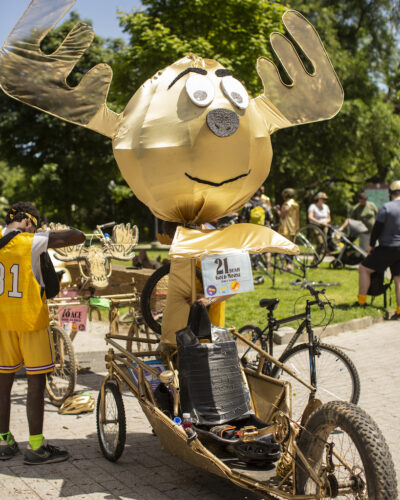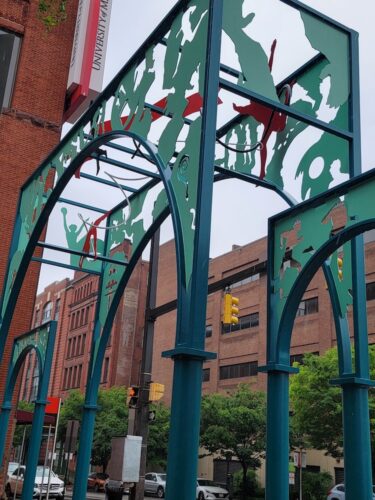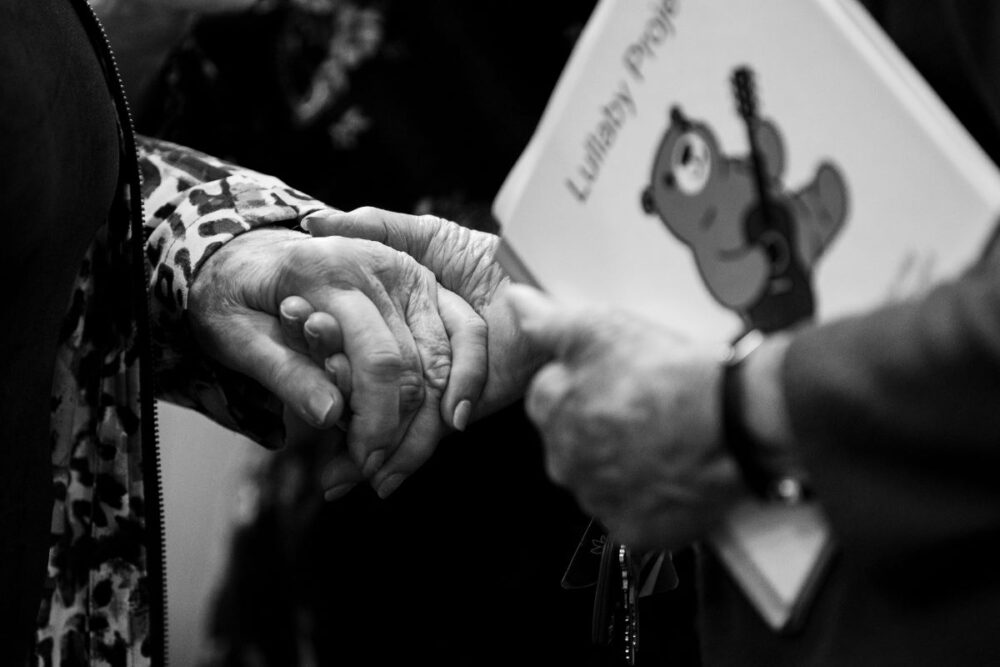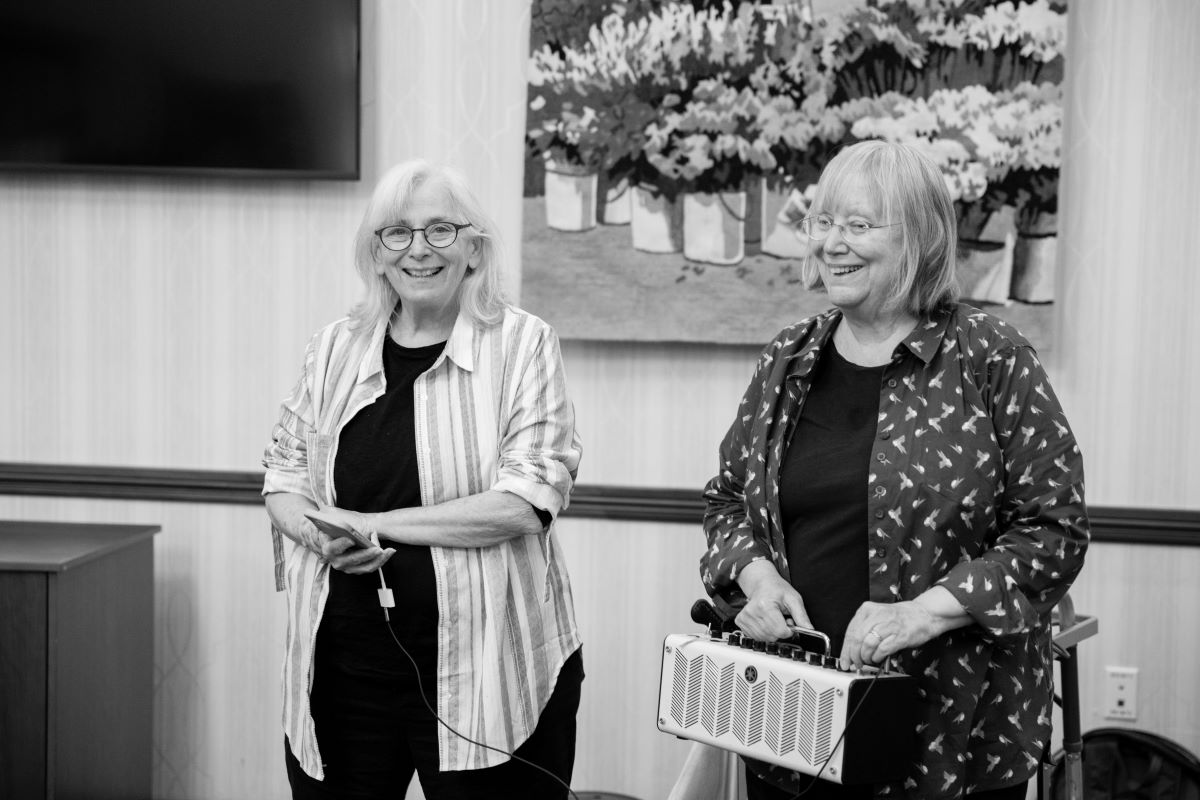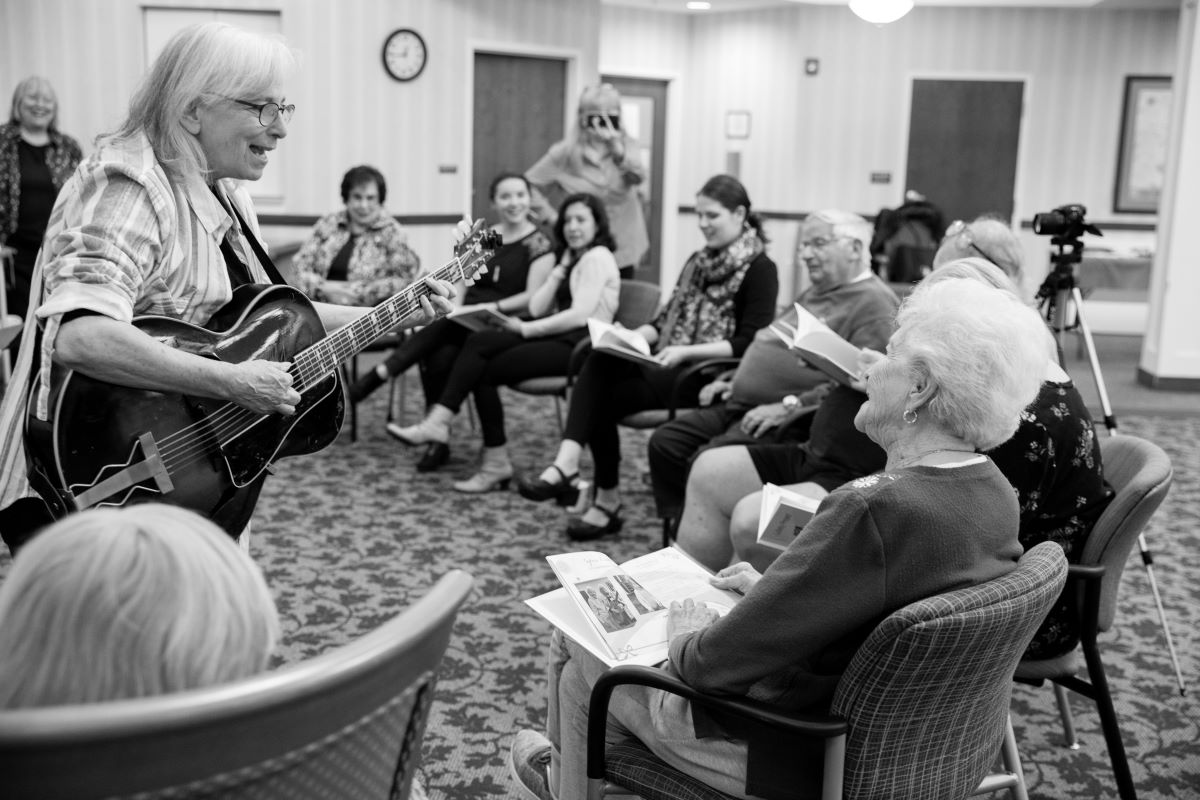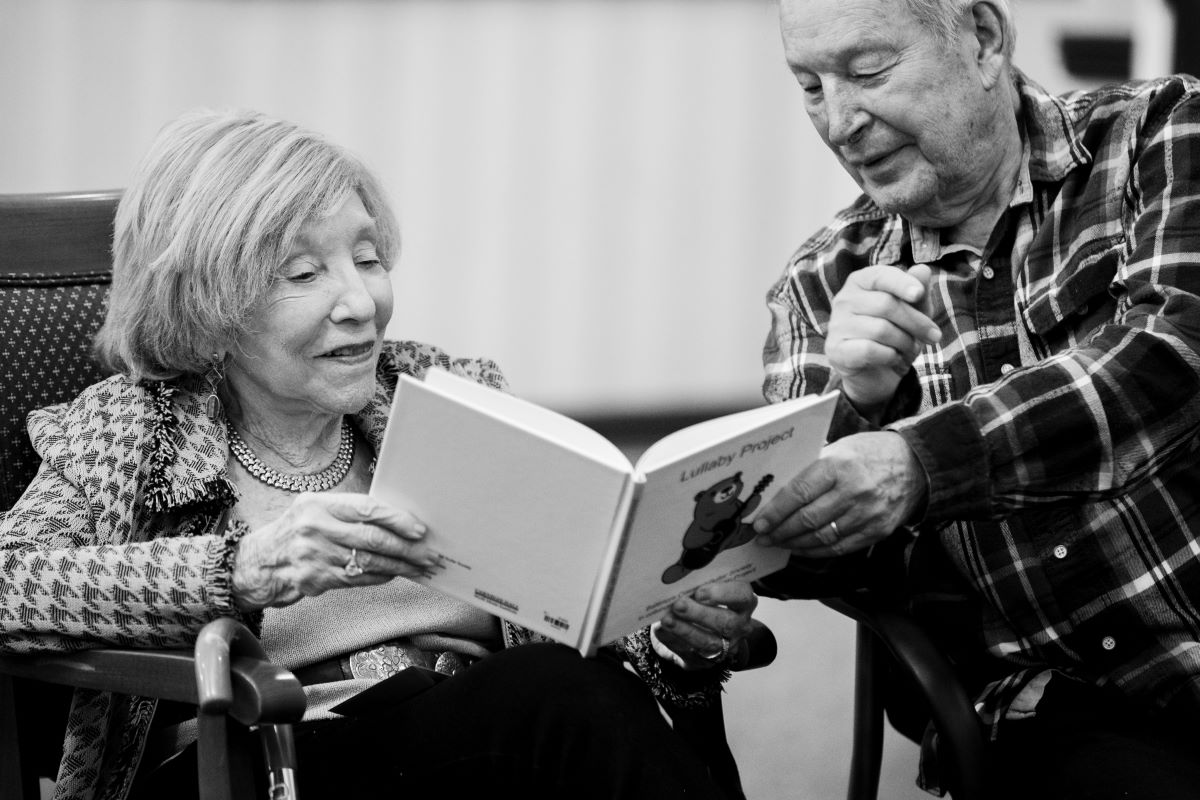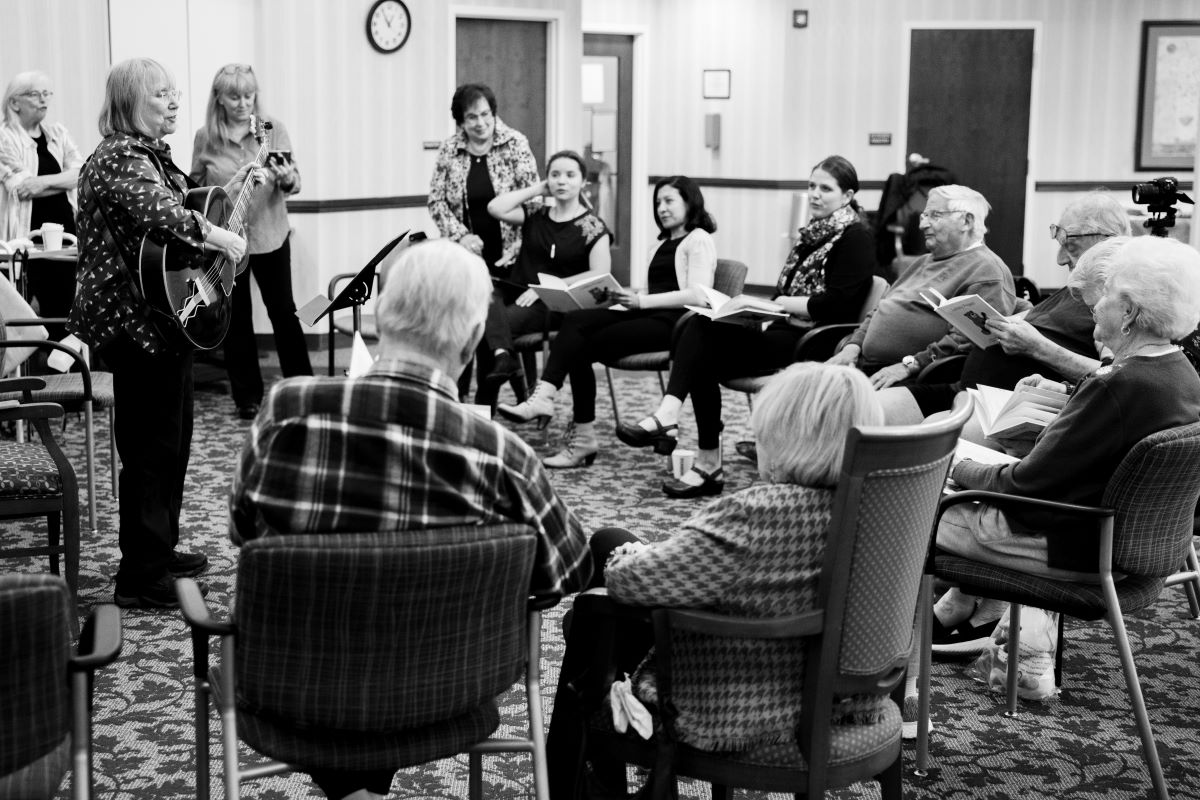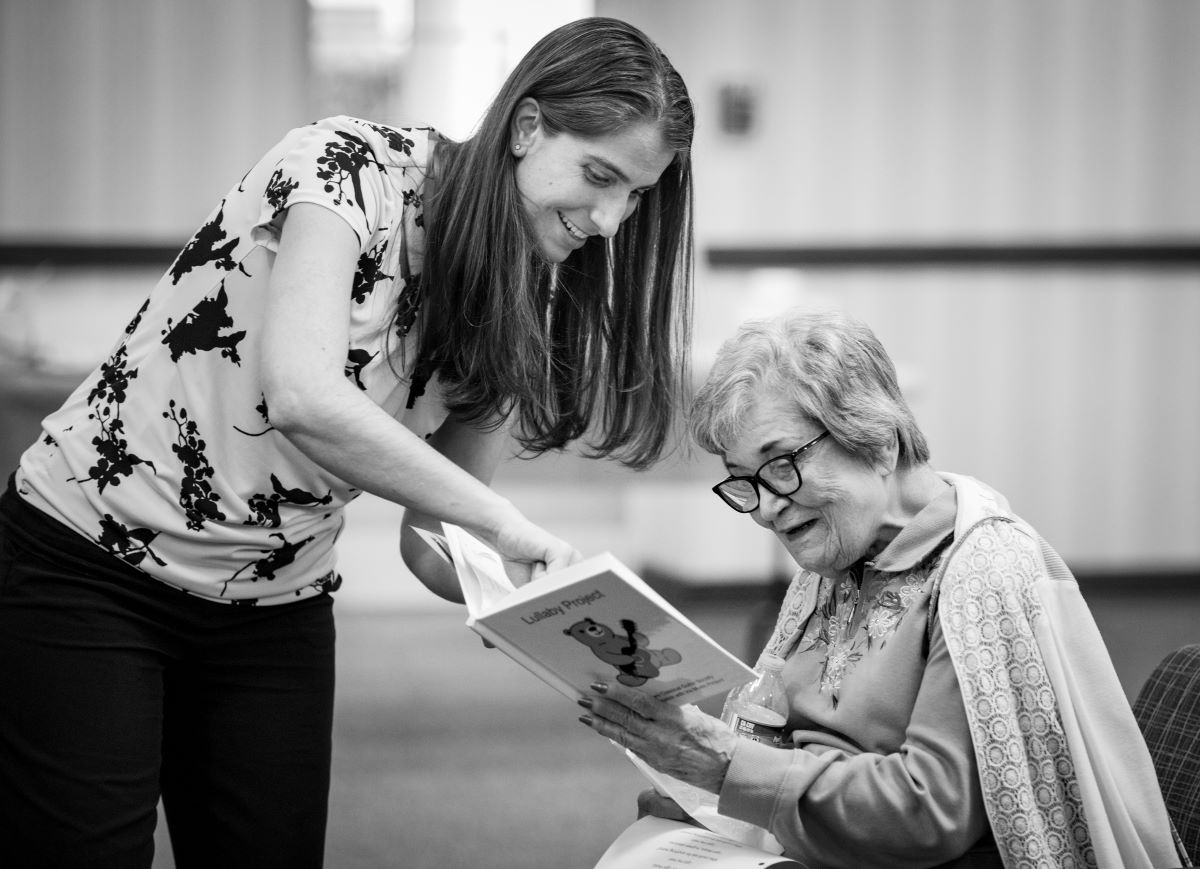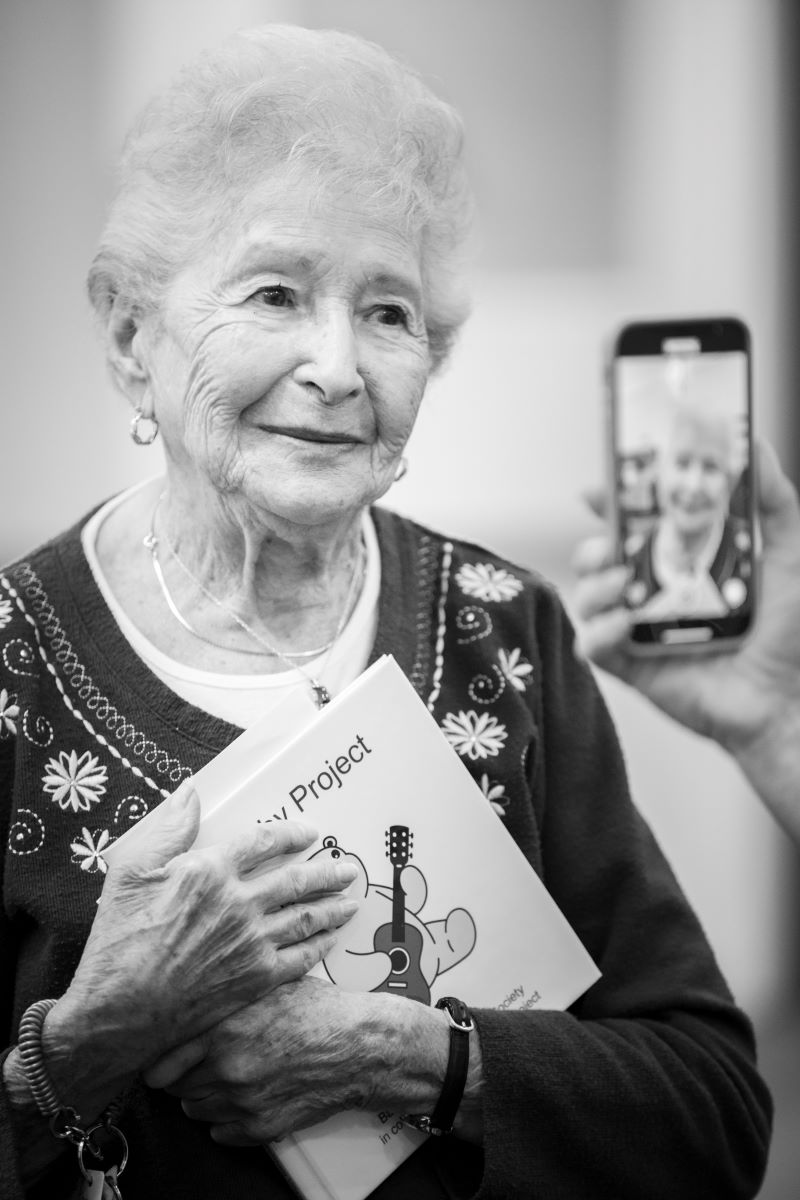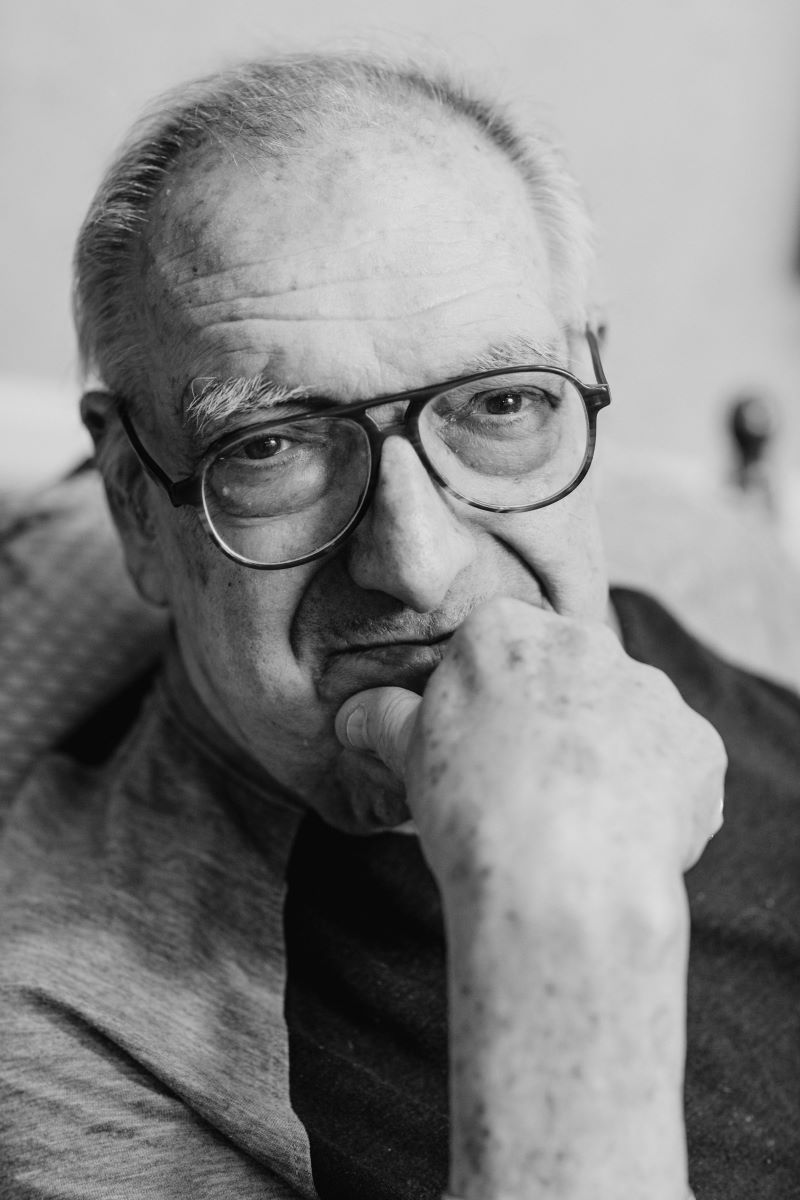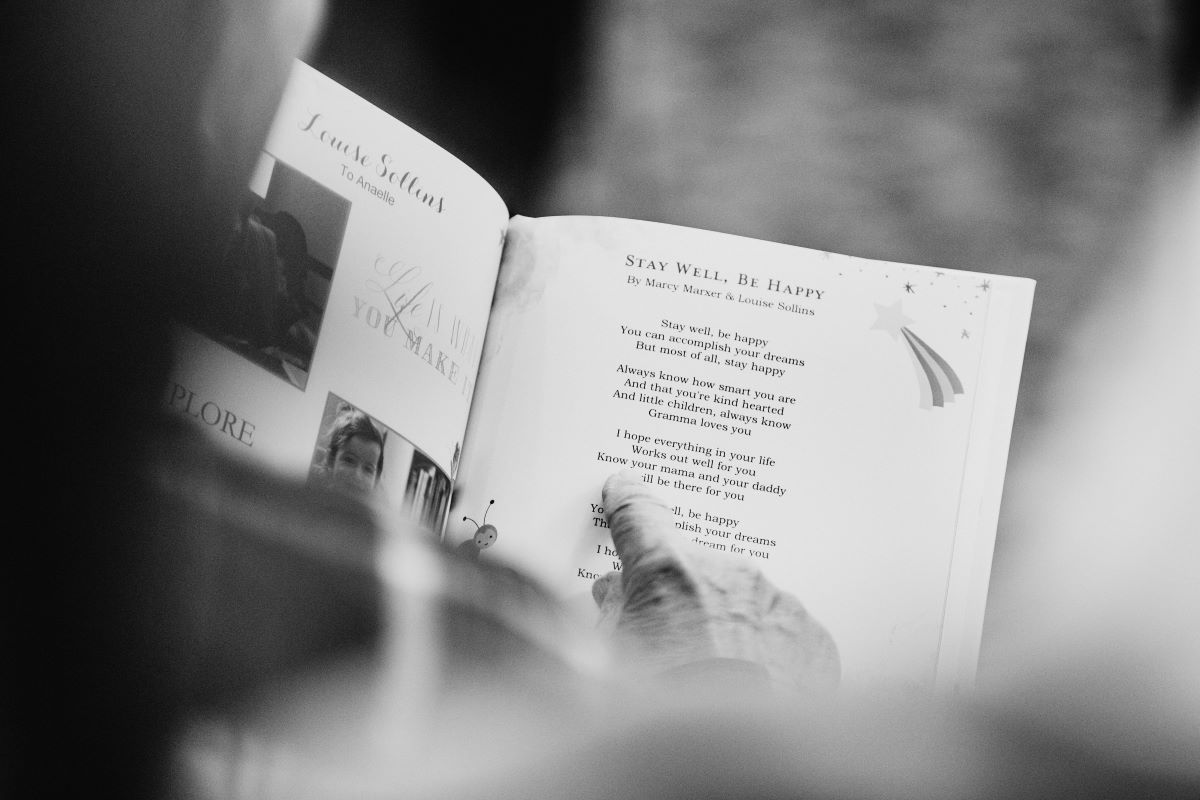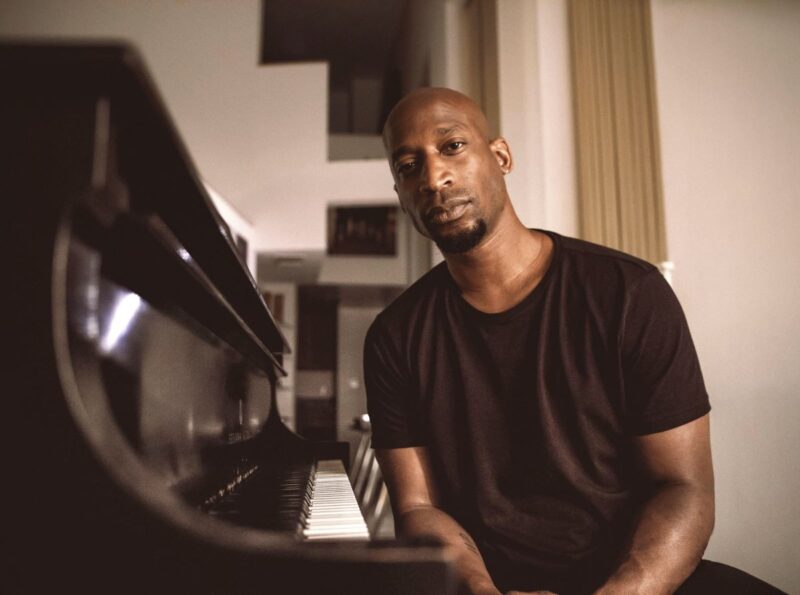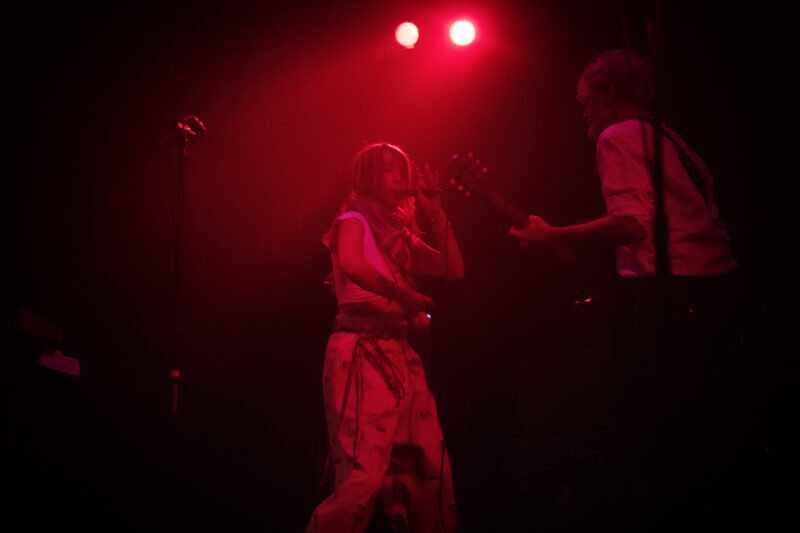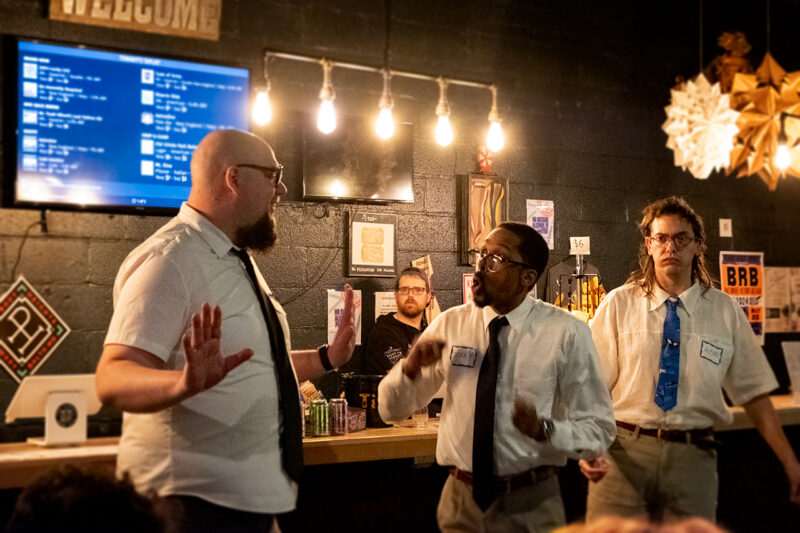Lullabies are a conduit for the dreams of younger generations. At the same time, they can connect us to the generations that came before. On May 21st, as part of a multi-day music festival, seven residents of Weinberg Villages Senior Living Community in Owings Mills, will present personally composed lullabies produced in collaboration with Marcy Marxer and Cathy Fink—Grammy-winning songwriters from the Baltimore Classical Guitar Society (BCGS)—and professional musicians, Catherine Mikelson (cellist), Diana Sanchez (violinist), and Alina Antonenko (pianist). Mikelson, Sanchez, and Antonenko are members of the Iris Music Project (IMP), a non-profit that uses music to vitalize residential and healthcare communities and transform them into “spaces of creative exchange.”
Taking place on May 18th, 19th, and 21st, the 2023 Weinberg Village Music Festival is the culmination of a two-year partnership between IMP and the residents of Weinberg Villages. Funding for the Festival is supported by a Challenge America Grant provided by the National Endowment for the Arts. The lullabies will be performed on the 21st by the IMP music trio and a guest singer. Lyrics written by the residents will be displayed behind the musicians.
Though the event on the 21st is open to the public, says IMP founder and Peabody Conservatory graduate, Lauren Latessa, “bringing in the public wasn’t our primary goal.” Rather, the festival is meant to provide a space where Weinberg Villages residents and their musical partners can gather to experience and sing along to the lullabies together.
